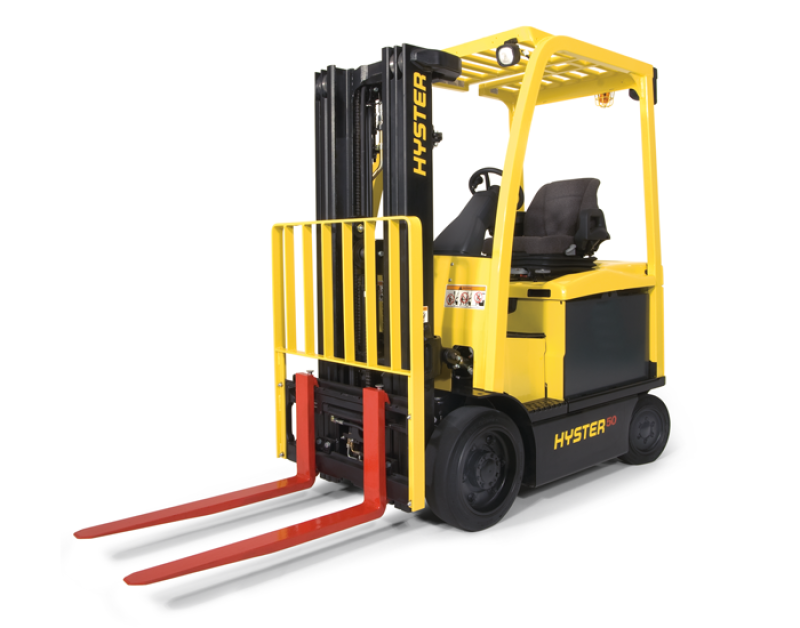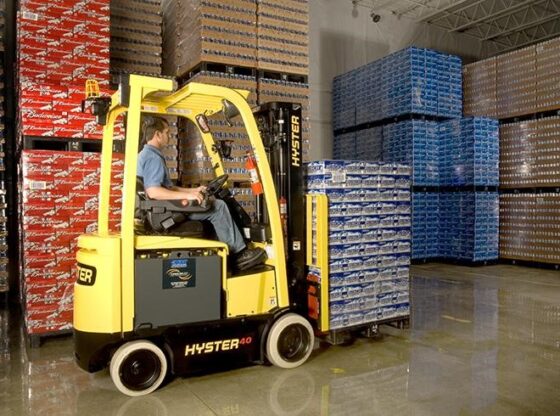Electric forklifts Bahrain have gained a lot of popularity in recent years due to their environmentally friendly and cost-effective nature. They are increasingly being used in warehouses, manufacturing facilities, and other commercial spaces that require frequent lifting and moving of heavy loads. However, as with any technology, electric forklifts have their own set of pros and cons. In this article, we will dive into the advantages and disadvantages of electric forklifts, providing a comprehensive guide to help you decide whether an electric forklift is the right fit for your business.
Pros of Electric Forklifts
Electric forklifts are gaining popularity in the material handling industry due to their numerous advantages over their gas or diesel-powered counterparts. Here are some of the pros of electric forklifts:
Lower operating costs due to cheaper electricity
Electric forklifts run on electricity, which is much cheaper than gas or diesel. Moreover, the cost of electricity is stable and predictable, whereas the cost of gas or diesel will fluctuate depending on market conditions. Electric forklifts have a lower total cost of ownership (TCO) than gas or diesel-powered forklifts.
Lower maintenance costs due to fewer moving parts
Electric forklifts contain fewer moving parts when compared with gas or diesel-powered forklifts. As a result, they require less maintenance, which means lower maintenance costs. They also have fewer fluids to change, such as engine oil and transmission fluid, which further reduces maintenance costs.
Quieter operation for indoor use
Electric forklifts are much quieter than gas or diesel-powered forklifts, making them ideal for indoor use. They produce less noise pollution, which is especially important in noise-sensitive environments, such as hospitals, schools, and residential areas.
Zero emissions for better indoor air quality
Electric forklifts produce zero emissions, which means they don’t emit harmful pollutants into the air. This is especially important in indoor environments where poor air quality is a health hazard for workers. With electric forklifts, you don’t have to worry about harmful emissions affecting the health of your workers or the environment.
Smaller carbon footprint for sustainability
Electric forklifts have a smaller carbon footprint than gas or diesel-powered forklifts. Since they don’t produce emissions, they don’t contribute to air pollution or climate change. They are a sustainable option for businesses looking to reduce their carbon footprint and be more environmentally responsible.
Cons of Electric Forklifts:
Despite the many benefits of electric forklifts, they are not always the best solution for every application. Here are some of the potential drawbacks of electric forklifts:
Higher upfront cost:
Electric forklifts typically have a higher purchase or lease cost compared to their internal combustion counterparts. This may make them a less attractive option for companies with a limited budget.
Limited battery life:
Electric forklifts are powered by batteries that have a limited lifespan and require regular recharging or swapping. This leads to downtime for the forklift and reduced productivity for the operator.

Slower speeds and less power compared:
Electric forklifts are generally slower and less powerful than their internal combustion counterparts. This may make them less suitable for heavy-duty applications or applications that require high speeds.
Limited use for outdoor applications:
Electric forklifts may be less suitable for outdoor applications in extreme weather conditions or on uneven terrain. They may also have limited use in applications that require a lot of maneuvering or sudden stops and starts.
Availability problem of charging infrastructure:
Charging infrastructure for electric forklifts may be limited in some areas, which will make it difficult to recharge or swap batteries. This results in downtime and reduced productivity for the operator.
Conclusion
Electric forklifts are a great choice for many businesses, especially those looking to reduce their carbon footprint and maintenance costs. While they do have some limitations, such as requiring charging time and limited outdoor use, the pros generally outweigh the cons. When choosing the right forklift for your specific application, it’s important to consider factors such as your budget, the weight of the loads you will be lifting, and the type of terrain your forklift will be operating on. At Kanoo Machinery, we offer a wide range of forklifts to meet the needs of businesses in Bahrain. Our expert team will help you choose the right forklift for your specific needs. Visit our website to browse our collection, or get in touch with our team at Toll Free Number – 800 01125.



















